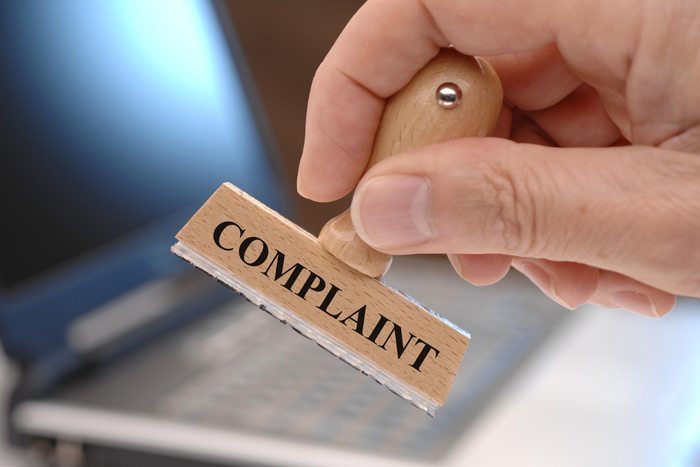Complaints Filed Against Pennsylvania Colleges Alleging Discrimination Against Female Athletes
The Women’s Law Project has filed complaints with the Office for Civil Rights of the U.S. Department of Education against nine of 14 members of the Pennsylvania State System of Higher Education, claiming that the colleges have discriminated against female athletes.

The Women’s Law Project, a Philadelphia-based advocacy organization, has filed complaints with the Office for Civil Rights of the U.S. Department of Education against nine of 14 members of the Pennsylvania State System of Higher Education (PSSHE), claiming that the colleges have discriminated against female athletes.
The schools are Bloomsburg University, Cheyney University of Pennsylvania, Clarion University, Indiana University of Pennsylvania, Kutztown University, Lock Haven University, Mansfield University, Millersville University, and Shippensburg University.
“There is no excuse for the athletic disparities at these PSSHE member universities,” wrote Women’s Law Project managing attorney Terry Fromson in a letter to counsel for PSSHE. “Despite the fact that Title IX has obligated them to achieve gender equality for more than four decades, these universities have not undertaken genuine efforts to increase opportunities for or satisfy the athletic interests of their female students. It is time for PSSHE as a whole to undertake appropriate and ongoing measures to effectively and promptly address the inequities in their athletic programs.”
Title IX of the Education Amendments of 1972 requires universities to demonstrate that they are providing female students equal athletic opportunity, financial assistance, and recruiting support relative to their full-time enrollment. The schools must show “continuing practice of increasing athletic opportunities for women.” The complaints are based on public records.
In response, PSSHE spokesperson Kenn Marshall stopped short of claiming that there is gender equity at the schools, and instead focused on efforts made toward such equity.
From an email Marshall sent to Rewire:
Despite being faced with changing demographics in the state — which have resulted in relatively flat or even declining enrollments across the System — as well as significant, long-term financial challenges, all of the institutions have made progress toward achieving gender equity in the area of athletic participation.
The Women’s Law Project (WLP) calculated the number of missed opportunities at each school, meaning the number of individual female athletes needed to achieve parity relevant to enrollment numbers. Bloomsburg University, for example, would have to “add 182 additional athletic opportunities for women in order to provide athletic opportunities substantially proportionate to enrollment.”
WLP also noted specific missed opportunities to increase women’s participation in varsity sports, such as at Bloomsburg; the university hosts a women’s volleyball club, but it is not classified as a varsity sport, even though Pennsylvania State Athletic Conference (PSAC) sponsors women’s volleyball. The same argument was made for equestrian and rugby at the school.
“There’s an array of benefits that flow to the students along with varsity status that you would not get at all, or to that extent, with just club status,” Susan Frietsche, senior attorney at WLP, told Rewire. “Instead of having to buy your own uniforms, that’s part of your budget. You get coaching, you get trainers, you get help scheduling your classes so that they don’t conflict with your game, you get field time, you get locker rooms, you get publicity, you get staff to arrange your competition schedule, you get … official school recognition, and you get scholarships.”
At issue is not just participation, but financial investment. From the complaint:
In 2012-13, Bloomsburg spent $28,146 on men’s recruitment and only $14,160 on women’s recruitment; women were allocated only 33% of the recruiting budget even though they account for 40.75 percent of the athletic population and 56.41percent of the full-time undergraduate population.
Collectively, WLP identified more than 900 missed athletic opportunities for women at the nine colleges.
The WLP’s letter to counsel for PSSHE outlined the reason for the group’s efforts:
Young women at all of the system universities deserve to be treated equally and to receive the benefits long accorded to their male counterparts in the athletic arena. These benefits include better health now and throughout life; improved self-esteem and self-confidence; a reduced likelihood of depression, drug or alcohol abuse and eating disorders; better grades; heightened leadership skills; and greater professional success in the workplace.
The letter also notes that filing the complaints “should come as no surprise,” given that three PSSHE members named in the current complaints, including Indiana University, have been successfully sued over Title IX violations in federal court over the past three decades.
The cases come at an interesting time: The Pennsylvania legislature is currently considering repealing parts of the Equity in Interscholastic Athletics Disclosure Bill. Passed in 2012, the law requires Pennsylvania public high schools to submit an annual report to the state Department of Education demonstrating they have met the requirements of Title IX.
The new bill, HB 1734, would partially and then fully repeal the Equity in Interscholastic Athletics Disclosure Bill, making it harder for communities to assess gender discrimination in high school sports.
HB 1734 was introduced by Rep. Donna Oberlander (R-Clarion/Armstrong). In her co-sponsorship memo, Oberlander stated that the reporting requirements were “time-consuming and burdensome.”
